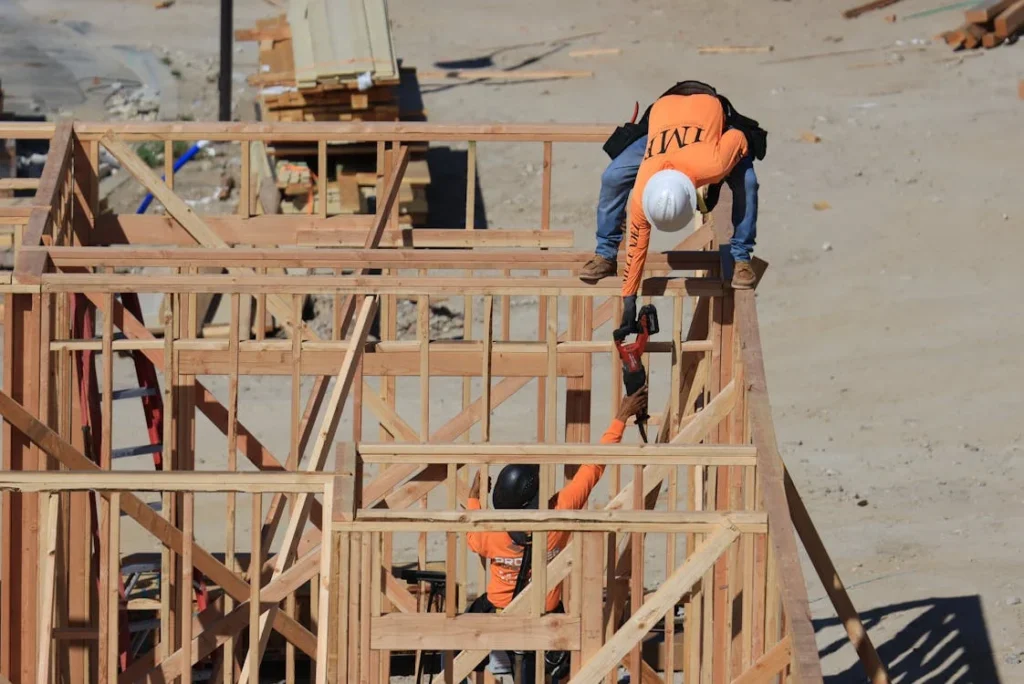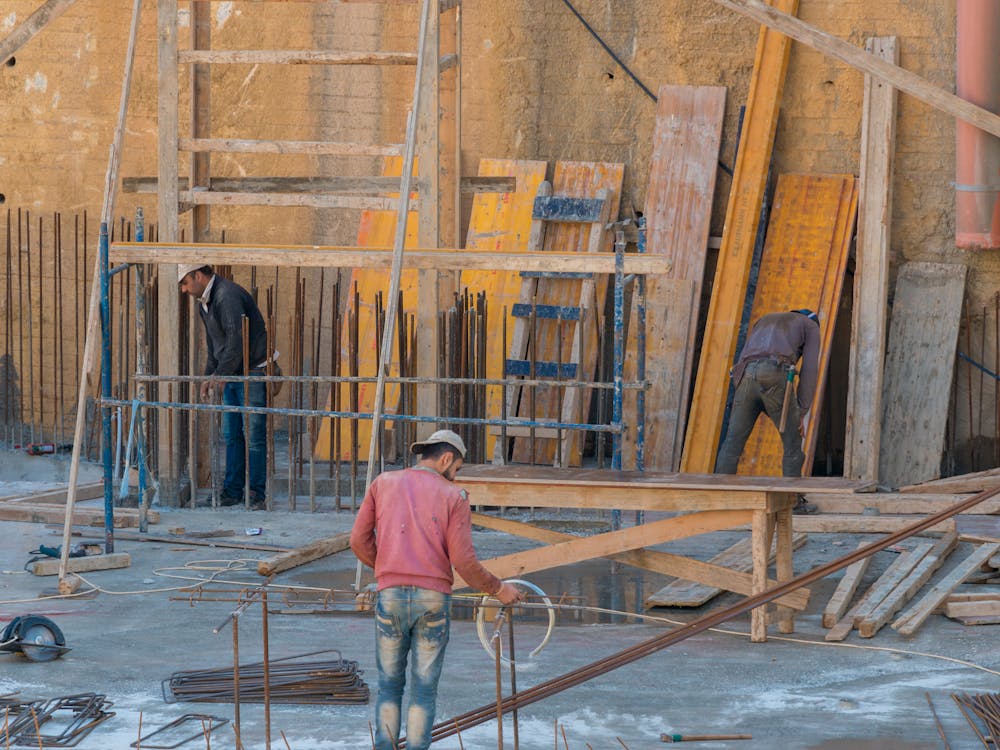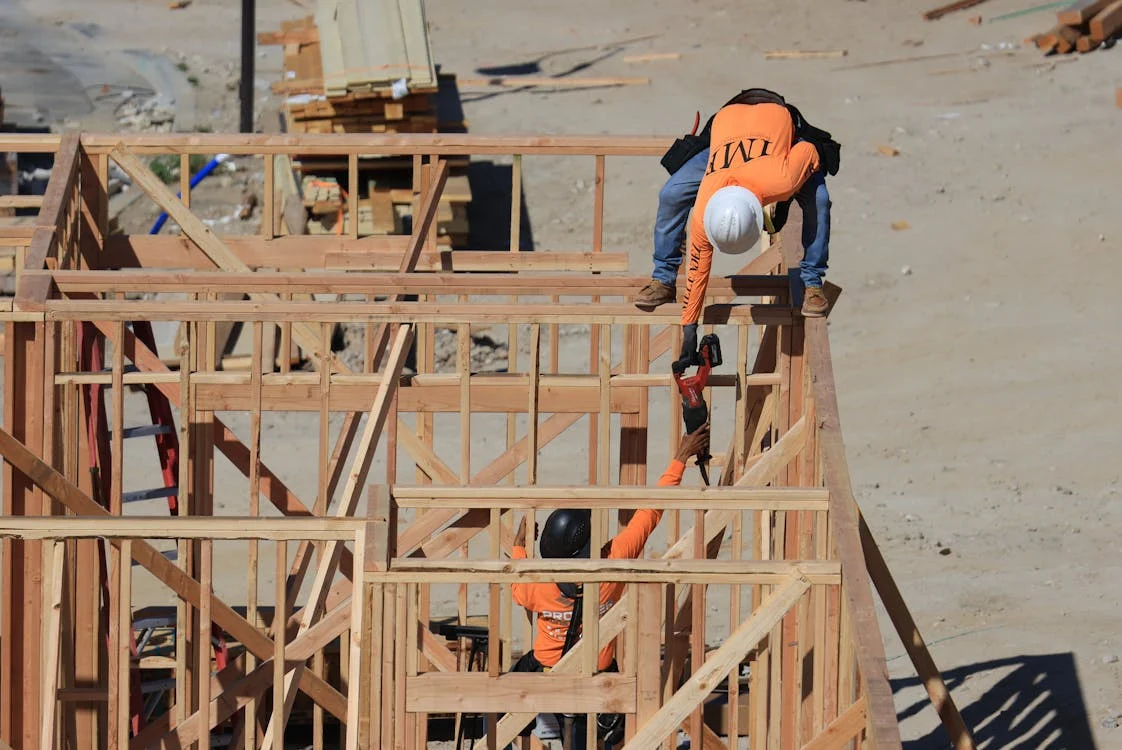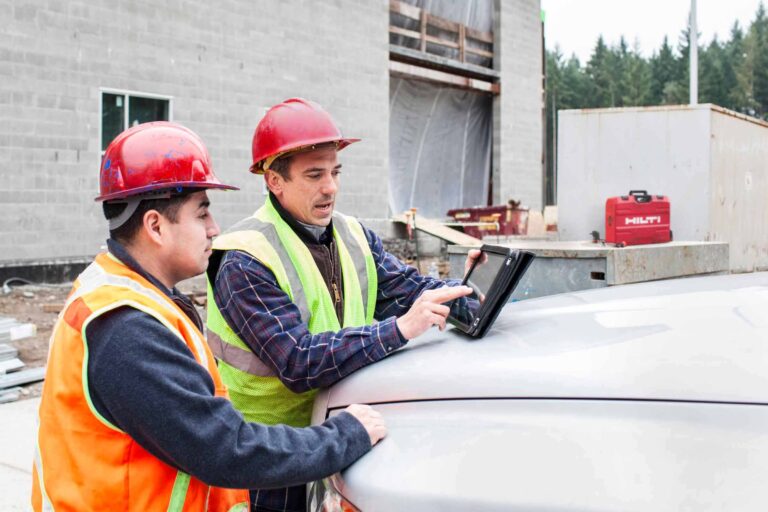The construction industry, often perceived as traditional and slow to adopt new technologies, is undergoing a significant transformation. With advancements in artificial intelligence (AI) and automation, construction management is poised for a future where efficiency, productivity, and innovation are at the forefront. This blog explores the emerging trends in AI and automation within construction management, their potential benefits, and the challenges that come with these technological advancements.

The Evolution of Construction Management
Traditionally, construction management has relied heavily on manual processes and human judgement. Skilled professionals have been indispensable, using their expertise to oversee projects from inception to completion. However, the industry is now embracing technology to enhance various aspects of construction projects. The integration of AI and automation is set to revolutionise the way construction projects are planned, executed, and managed. AI can analyse vast amounts of data to predict project outcomes, optimise schedules, and identify potential risks before they become issues. Automation streamlines repetitive tasks, increases efficiency, and reduces human error. This technological shift not only improves productivity but also allows construction managers to focus more on strategic decision-making and problem-solving, paving the way for more innovative and efficient construction practices.
Key AI & Automation Trends in Construction Management
AI-Driven Project Planning and Scheduling
AI algorithms can analyse vast amounts of data from past projects to predict potential risks and optimise project schedules. By processing historical data on various factors, such as weather conditions, material availability, workforce productivity, and project timelines, AI can generate insights that help in forecasting potential challenges and bottlenecks. For example, AI can assess patterns related to supply chain disruptions or labour shortages and recommend adjustments to project plans accordingly. It can also simulate different scenarios to identify the most efficient strategies for resource allocation and schedule management. By incorporating real-time data and adapting to changing conditions, AI can create more accurate and dynamic project plans. This not only enhances the precision of scheduling but also improves overall project efficiency and risk management, leading to more successful and timely project completions.
Automated Design and BIM (Building Information Modeling)
Building Information Modeling (BIM) is a digital representation of the physical and functional characteristics of a facility. AI enhances BIM by automating the design process, identifying potential design flaws, and suggesting improvements. This not only speeds up the design phase but also ensures higher accuracy and reduced rework.
Robotics and Automated Construction Equipment
Automation is making its way to the construction site through the use of robots and automated machinery. Drones can survey construction sites, providing detailed aerial views and real-time data that help in planning and monitoring progress. Autonomous vehicles can transport materials efficiently across the site, reducing the need for manual labour and minimising the risk of human error. Robotic arms can perform repetitive tasks such as bricklaying and welding with precision and consistency, ensuring high-quality results and freeing up human workers for more complex and skilled tasks.
These technologies significantly increase productivity by speeding up processes and allowing for continuous work without the need for breaks. Improved safety is another major benefit, as robots and autonomous machines can operate in hazardous environments, reducing the risk of accidents and injuries to human workers. For instance, drones can inspect hard-to-reach areas, while robotic machinery can handle heavy lifting and potentially dangerous tasks.
Predictive Maintenance and Asset Management
AI-powered predictive maintenance systems can monitor the health of construction equipment in real-time. By analysing data from sensors, these systems can predict when a machine is likely to fail and schedule maintenance before a breakdown occurs. This reduces downtime and extends the lifespan of equipment.
Safety Monitoring and Risk Management
Safety is a paramount concern in construction. AI and automation can enhance safety by monitoring construction sites for potential hazards. For example, computer vision technology can detect unsafe behaviours or conditions and alert supervisors in real-time, allowing for immediate corrective actions. Additionally, AI can analyse historical accident data to identify high-risk areas and suggest preventive measures, helping to mitigate potential dangers before they lead to incidents.
Wearable technology integrated with AI can track workers’ movements and vital signs, providing early warnings of fatigue or health issues that could compromise safety. Drones equipped with cameras and sensors can conduct aerial inspections, identifying structural weaknesses or unsafe areas that might be overlooked from the ground.
These advanced technologies not only enhance on-site safety but also contribute to creating a culture of proactive risk management. By leveraging AI and automation, construction companies can significantly reduce the incidence of accidents, ensure compliance with safety regulations, and promote a safer working environment for all employees.
Supply Chain Optimization
AI can streamline the construction supply chain by predicting material demand, optimising inventory levels, and identifying the most efficient suppliers. Automation can also facilitate just-in-time delivery, reducing storage costs and minimising delays due to material shortages.
Enhanced Collaboration and Communication
AI-powered tools can improve collaboration among project stakeholders. Natural language processing (NLP) can analyse project documents and emails to identify key information and trends. Chatbots can assist in answering queries and providing updates, ensuring that everyone is on the same page.
Data Analytics and Decision Making
The construction industry generates vast amounts of data. AI can analyse this data to provide actionable insights, helping project managers make informed decisions. For example, AI can identify patterns in project performance data, enabling managers to pinpoint inefficiencies and implement corrective measures.
Benefits of AI & Automation in Construction Management
Increased Efficiency and Productivity
By automating repetitive tasks and optimising project schedules, AI and automation significantly increase efficiency and productivity. This allows construction companies to complete projects faster and take on more work, boosting their overall capacity.
Cost Savings
Automation reduces labour costs by performing tasks that would otherwise require human workers. Additionally, AI-driven project planning and predictive maintenance help in minimising waste and preventing costly delays and equipment failures.
Improved Quality and Accuracy
AI-enhanced BIM and automated design tools ensure higher accuracy in project plans and designs. This reduces the likelihood of errors and rework, leading to better quality outcomes and satisfied clients.
Enhanced Safety
AI and automation technologies contribute to safer construction sites by monitoring for potential hazards and preventing accidents. This not only protects workers but also reduces costs associated with workplace injuries and insurance claims.
Better Decision Making
AI-driven data analytics provide construction managers with valuable insights into project performance, resource utilisation, and risk factors. This enables more informed decision-making, leading to better project outcomes.

Challenges and Considerations
While the benefits of AI and automation in construction management are clear, several challenges must be addressed to fully realise their potential.
Initial Investment and Implementation Costs
Adopting AI and automation technologies requires significant upfront investment. Small and medium-sized construction companies may find it challenging to bear these costs. Additionally, the implementation process can be complex and time-consuming.
Workforce Adaptation and Training
The introduction of AI and automation will inevitably change the nature of work in the construction industry. Workers will need to adapt to new roles and acquire new skills. Training programs and continuous education will be essential to ensure a smooth transition.
Data Security and Privacy
The increased reliance on data-driven technologies raises concerns about data security and privacy. Construction companies must implement robust cybersecurity measures to protect sensitive information from breaches and unauthorised access.
Interoperability and Integration
Construction projects often involve multiple stakeholders and systems. Ensuring that AI and automation tools can seamlessly integrate with existing systems and workflows is crucial for their successful adoption.
Regulatory and Ethical Considerations
The use of AI and automation in construction management raises regulatory and ethical questions. For example, how should liability be determined in the event of an accident involving autonomous equipment? Clear regulations and ethical guidelines will be necessary to address these issues.
The Future Landscape of Construction Management
The construction industry is at the cusp of a technological revolution. As AI and automation continue to evolve, their impact on construction management will only grow. Here are some potential future developments:
Fully Autonomous Construction Sites
In the future, we may see construction sites that operate almost entirely autonomously. Drones, robots, and AI-driven systems will work together to perform tasks with minimal human intervention. This will lead to unprecedented levels of efficiency and safety.
AI-Powered Design and Planning
AI will become an integral part of the design and planning process. Architects and engineers will collaborate with AI systems to create innovative designs and optimised project plans. AI will also facilitate real-time adjustments based on changing conditions and requirements.
Smart Buildings and Infrastructure
The integration of AI and IoT (Internet of Things) will give rise to smart buildings and infrastructure. These structures will be able to monitor their own health, optimise energy consumption, and adapt to the needs of their occupants.
Sustainable Construction Practices
AI and automation will play a crucial role in promoting sustainability in construction. AI-driven analysis will help in identifying environmentally friendly materials and practices. Automated systems will ensure efficient use of resources, minimising waste and reducing the carbon footprint of construction projects.
Enhanced Human-Machine Collaboration
The future of construction management will involve enhanced collaboration between humans and machines. AI will augment human capabilities, providing insights and assistance that enable workers to perform their tasks more effectively.
The future of construction management is being shaped by AI and automation. These technologies offer numerous benefits, including increased efficiency, cost savings, improved quality, and enhanced safety. However, their successful adoption requires addressing challenges related to investment, workforce adaptation, data security, and regulatory considerations.
As the construction industry continues to embrace AI and automation, it will undergo a profound transformation. Construction sites will become smarter, safer, and more efficient. Project managers will have powerful tools at their disposal to make informed decisions and deliver successful projects. Ultimately, the future of construction management will be characterised by innovation, collaboration, and a commitment to excellence.
By staying ahead of these trends and investing in the right technologies, construction companies can position themselves for success in an increasingly competitive and dynamic industry. Embracing AI and automation is not just an option; it is a necessity for those who wish to thrive in the future of construction management.
In the dynamic world of construction, staying ahead means embracing innovation. This is where Wunderbuild steps in, transforming the traditional landscape of construction management into a domain ruled by efficiency and modern technology. By integrating advanced tools and functionalities, Wunderbuild simplifies complex processes, ensuring that projects not only meet but exceed modern standards. Whether it’s streamlining project scheduling, enhancing communication, or boosting overall project management efficiency, Wunderbuild is your partner in navigating the evolving construction industry with confidence. Ready to revolutionise your construction projects? Discover here how Wunderbuild can elevate your management experience today.




